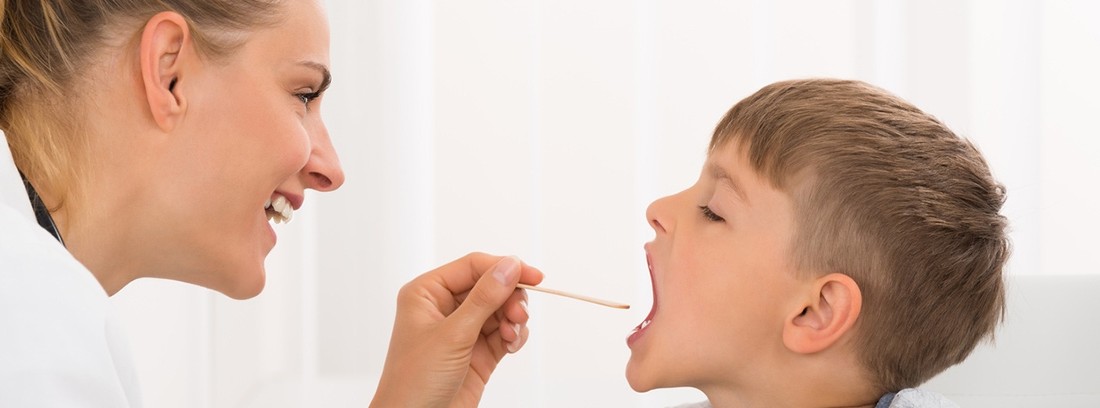Herpes simplex in children

Herpes simplex infection or HSV is a viral infection that can be of two types depending on the type of virus that infects:
HSV-1 virus
They affect the mouth and cause the popular "fever"; is he herpes labialis. Most of the and many children before the age of 6 have already been in contact with him. Most of the time the virus infection does not produce symptoms and the body produces antibodies against it and overcomes the infection but the virus stays in the body.
In certain circumstances (which are not very clear) andThe virus is like "numb" and it can be activated in certain circumstances, for example: when having a fever, being exposed to the sun, due to minor trauma, when going through times of stress ... The virus is activated and produces "fever" and in some people this "reactivation" it is repeated frequently. When it gives symptoms, it produces small blisters on the lips that break and leave a crust that takes a week to heal.
Herpetic gingivostomatitis (manifestation of HSV-1)
In some children, first time they come into contact with the virus and become infected show symptoms. It is more common in children between 6 months and 5 years and is manifested by these symptoms:
- High fever.
- Drooling
- Inflammation of the gums (gingivitis) that may bleed.
- Bad breath.
- Lymph nodes in the neck.
- Blisters or ulcers like cold sores but that spread on the lips, the skin around and inside the mouth including the tongue. They are painful and can cause problems when eating.
It is a process that can last 5 to 14 days. The child must be given medicines to reduce pain, lots of fluids and soft foods, which are not acidic and warm.
HSV-2 virus
It is the herpes that infects the genital area and produces genital blisters that recur periodically. The first time the individual is infected, it produces fever, lymphadenopathy and general malaise. This is the type of herpes produced by, when the mother has genital lesions at the time of delivery. In adolescents, they can be spread through unprotected sex if the partner is infected.
Treatment and prevention in children
The treatment of herpes simplex is an antiviral, the acyclovir. antibiotics are not effective (acyclovir does not need to be given for cold sores). Prevention consists of avoid contact with saliva of infected people. Children with gingivostomatitis they should not go to kindergarten or school until the blisters are crusted over. In addition, they should avoid share utensils (cutlery, glasses, etc.) and both they and their families should wash your hands often. Children with cold sores should not be excluded from group activities, although they should avoid sharing utensils.
(Updated at Mar 8 / 2025)
Some of the trademarks used in this Web Site appear for identification purposes only.
All orders are reviewed by a licensed physician and pharmacist before being dispensed and shipped.
The statements contained herein are not intended to diagnose, treat, cure or prevent disease. The statements are for informational purposes only and is it not meant to replace the services or recommendations of a physician or qualified health care practitioner. If you have questions about the drugs you are taking, check with your doctor, nurse, or pharmacist.